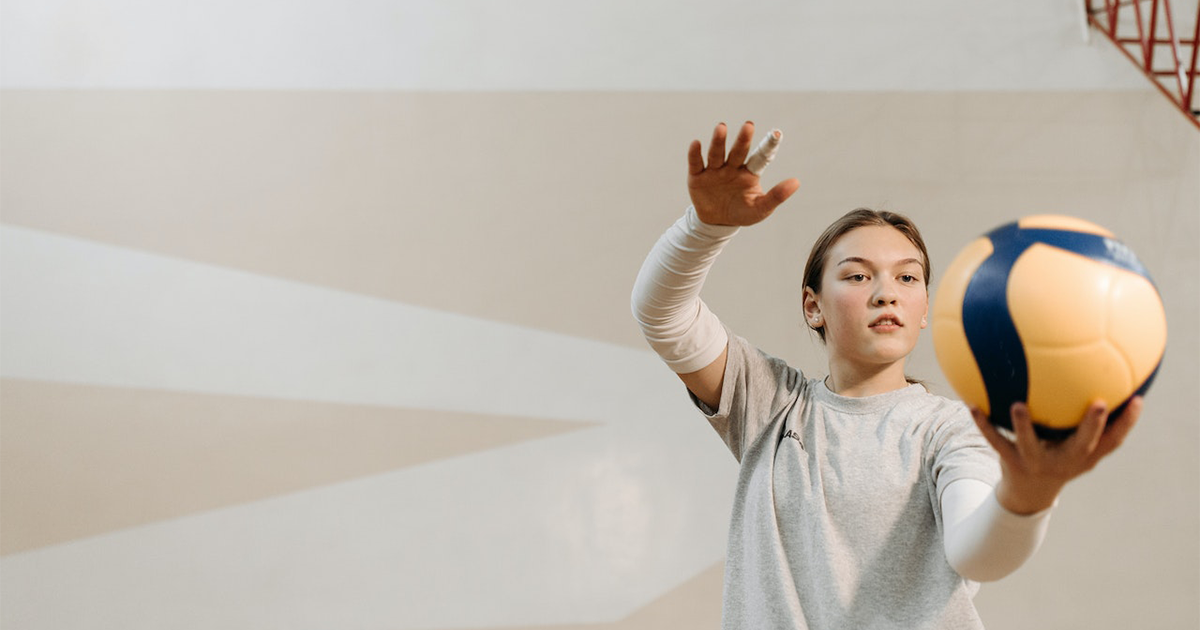The life of a teenage girl is frantic.
Study, sport, socialising – sometimes one has to give.
Often it’s sport. But there are many reasons why teenage girls stop playing sport.
According to our Year13 & Visa PlayOn youth sport research surveying 1250 13-23 year olds nationwide the peak age females stop playing sport in Australia is 15. Overall, 43% of teenage girls and young women were found to not play sport, while 57% play sport.
The new Year13 & Visa PlayOn website highlights the benefits of playing sport and connects role models like Team Visa Athletes Ellie Carpenter from the Australian women’s football team, Claudia Bunge from the New Zealand women’s football team and Olympic shot putter Dame Valerie Adams more visible and accessible to encourage young girls to stay in sport.
The top 10 reasons they gave for not playing were to have more time to study (48%), I prefer creative activities (47%), I can’t be bothered (39%), I don’t like sport (34%), I’m not good enough (34%), bodily insecurities (31%), I don’t like the competitive side of sport (30%), I feel inadequate compared to the top players and athletes (29%), my physical fitness wasn’t adequate (28%), and too much pressure (26%).
And we found there were some significant differences when it came to the reasons young males and females stop playing sport.
For example, almost half (48%) of girls who don’t play sport said they don’t play in order to have more time to study, compared to 30% of the young males who don’t play sport.
A 17-year-old female from Western Australia said she felt pressured by her family to quit sport and focus on studying instead.
“I think there’s a misconception that playing sport on a weekly basis means you’ll have less time to study, which caused me to stop,” she said.
“I faced pressure from my family to study and get into a good degree instead of playing sport, and it’s also affected many of my other friends.”
Bodily insecurities is the fifth top reason teenage girls stop playing sport, with many complaining about toxic body image standards in sports like gymnastics and dancing, to being terrified of wearing a netball uniform for fear of judgement.
“I was put into sport by my parents at an early age and loved it, but as I got older I was told that I wasn’t good enough, I wasn’t fit enough, I didn’t have the right body type,” a 17-year-old female from South Australia said.
“I was told that I had a ‘weird run’, or that my ‘legs jiggled’ too much. This made me extremely insecure and I stopped playing all together.”
Meanwhile, one in four females (26%) said they felt ‘too much pressure’, compared with just 17% of men. This goes alongside the 30% who said they don’t like the competitive side of sport.
A 17-year-old female from NSW said she started playing soccer when she was 8 years old and loved it but things changed as she got older.
“I really enjoyed it when I was younger because it wasn’t as competitive and I felt as though I could have a go, even though I was never very good at it,” she said.
“But as I got older, it got more competitive and I started to feel self-conscious about my abilities in comparison to my teammates, who were mostly very skilled.”
She said it got to the point where it was severely affecting her mental health because she was afraid of letting her team down.
“I put a lot of pressure on myself to perform well, even though I had originally only started playing to have some fun. And unfortunately, it took me a long time to be able to quit, because my parents really wanted me to keep going, but once I expressed how bad my mental health was becoming due to playing soccer, they relented.
“Once I’m older, I don’t think I’d go back to playing soccer. But I might consider playing in some non-competitive matches.”
As well, 12% of girls highlighted a lack of playing opportunities for females.
A 16-year-old female from South Australia said she loved playing tennis but is concerned opportunities to play from next year will dry up as she outgrows her local junior association.
“The next option after juniors is open and for my club there is nearly no positions for women. They are even thinking of getting rid of the positions for women entirely,” she said.
“Although women can play in a men’s position, the men are always stronger and give us a disadvantage. Due to that, I will probably not continue playing after next year.”
Find all the latest info about youth sport in Australia at Year13 & Visa’s PlayOn.






